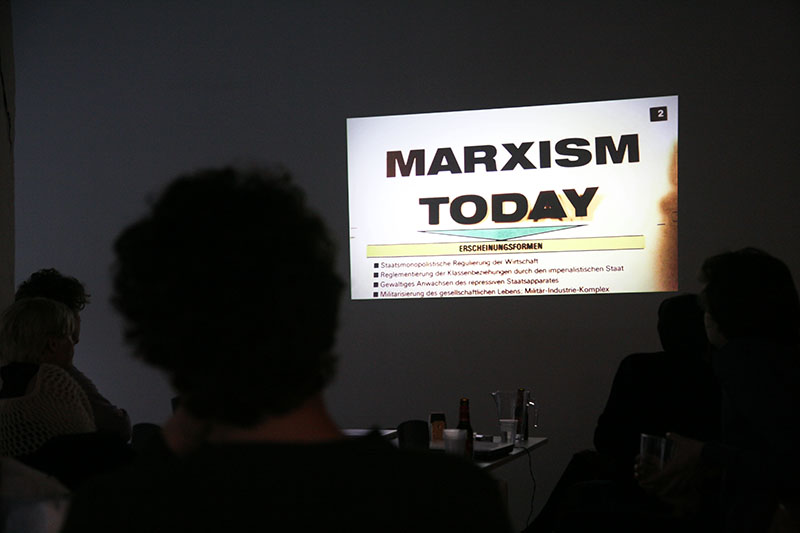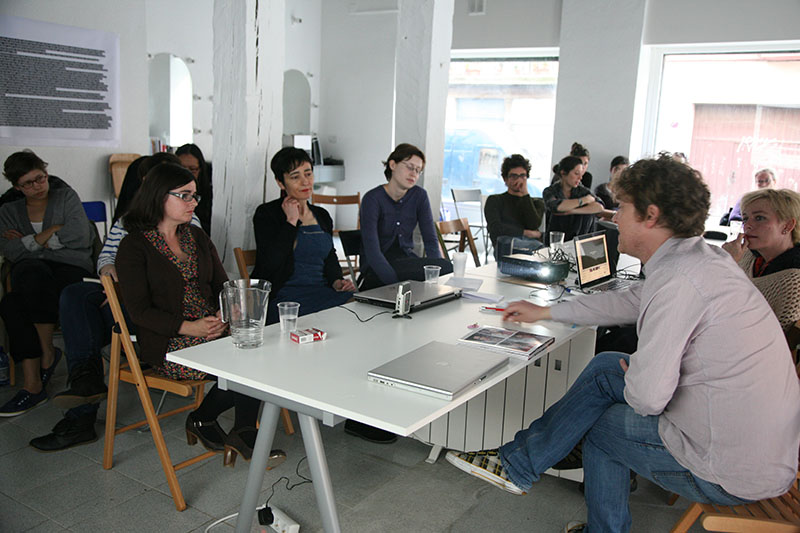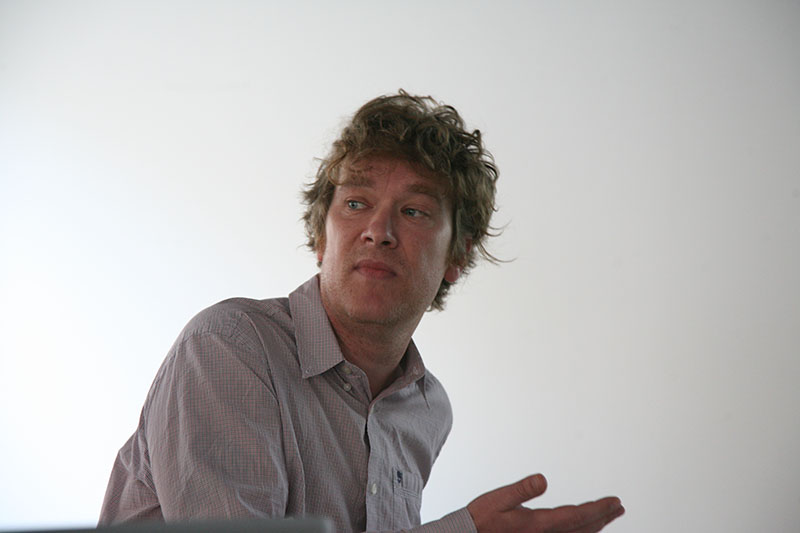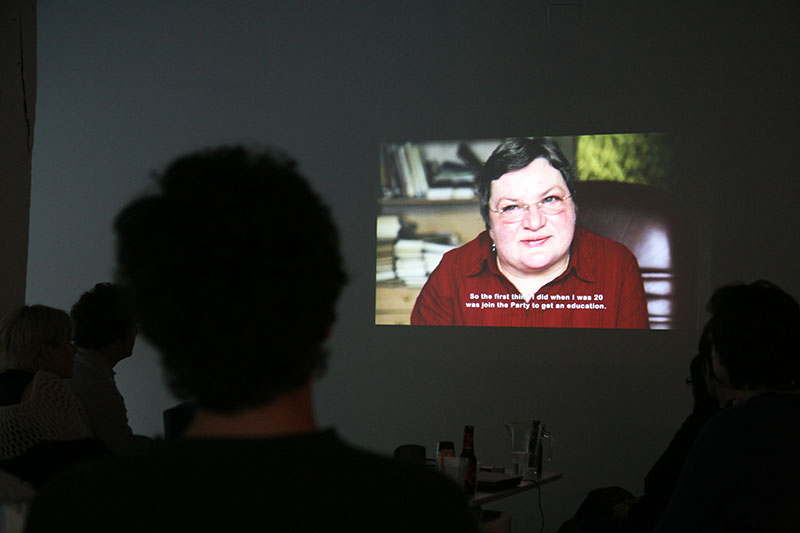Forms of formless knowledge
“Marxism-Leninism and the Telenovela”. Phil Collins
by
An evening hosted by artist Phil Collins as he introduces and refuses to answer any questions on two recent works – soy mi madre (2008) and marxism today (prologue) (2010).
soy mi madre
Shot in México City, soy mi madre is a telenovela-inspired tale of love, betrayal and family intrigue that examines the intricate power dynamics between unequals. A cast of leading Mexican television stars take turns at playing a spoilt mistress of the house and her resentful servants, with a dark family secret boiling under the surface and leading to an inevitably dramatic finale. Revolving around the ideas of role-playing and performance, masks and mirrors, symbols and rituals, soy mi madre posits social roles as volatile and unbalanced, defined by their inherent potential for theatricality and violence. Including the contribution of the acclaimed production designer Salvador Parra (Volver, Before Night Falls), soy mi madre is a study in the aesthetics and politics of melodrama.
marxism today (prologue)
Shining a light on what is generally perceived as the losing side in the political and social upheavals of the past two decades, marxism today is an ongoing project that began by following the fortunes of former teachers of Marxism-Leninism in Communist East Germany. Collins’ short film marxism today (prologue), first shown at the 6th Berlin Biennale in 2010, combines contemporary interviews with archive material in which snapshots of life in the old GDR are offset with the teachers’ own recollections of the time, and their contrasting experiences after the fall of the Berlin Wall in 1989.
Phil Collins
Eliciting the complex and ambiguous relationship between the camera and its subject, Phil Collins’ work examines individual and collective systems of representation. Collins’ multifaceted practice is based on a close engagement with place and community, and has addressed issues of ethnicity, gender, and political and linguistic identity through participatory events often organised in regions of social upheaval. In producing these projects, which have ranged from castings to a dance-a-thon to press conferences, Collins appropriates aspects of the documentary tradition and fuses them with elements of popular culture to create tender, affectionate and sometimes melancholic descriptions of humanity. Born in Runcorn, UK, Phil Collins is currently based in Berlin. Recent solo exhibitions include British Film Institute, London (2011), daadgalerie, Berlin (2010), Tramway, Glasgow (2009), Aspen Art Museum, Colorado (2008) and sala rekalde, Bilbao (2006).



